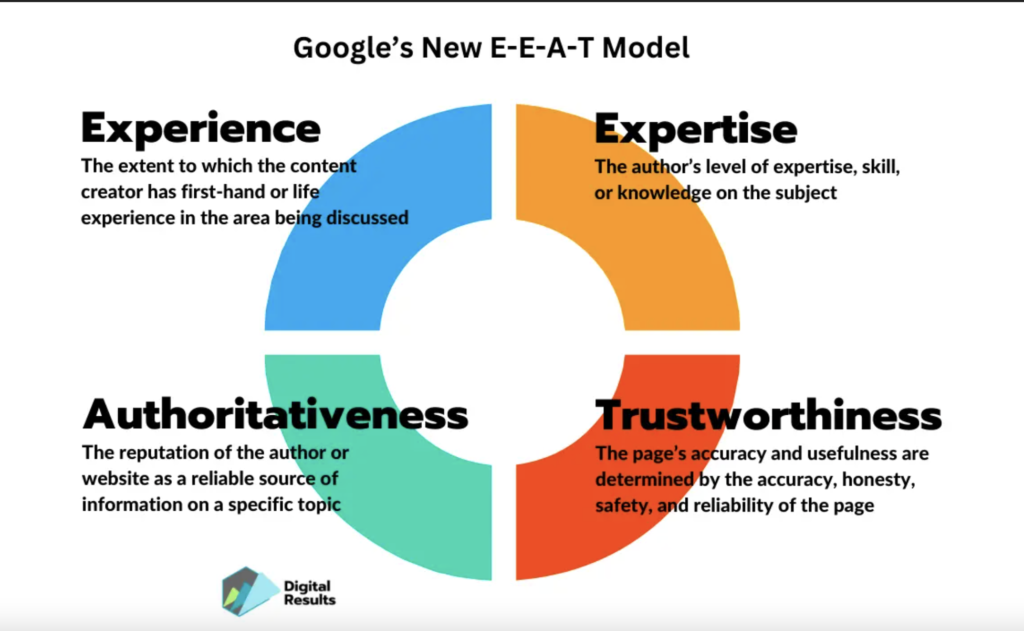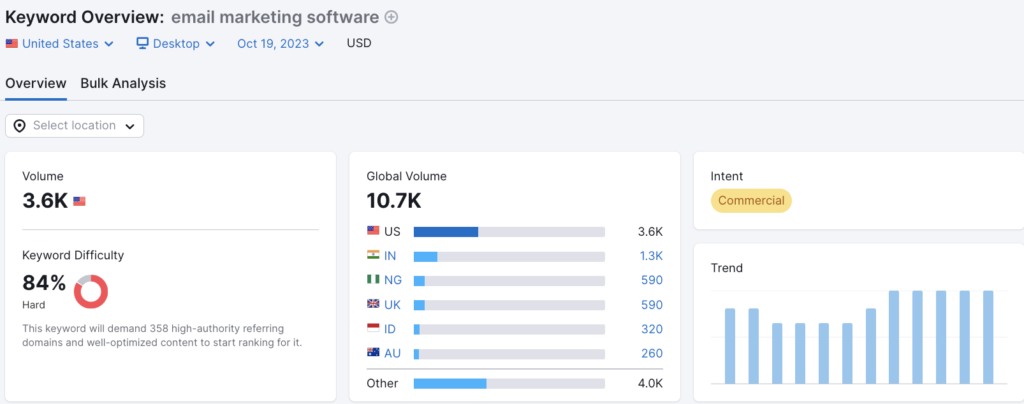Your B2B search engine optimization (SEO) strategies are like planting a garden. Gardeners don’t prepare the soil and plant the seeds expecting overnight results. They understand the work they put in today will increase the results in several weeks or months. Gardeners also realize that gardens require consistent work – otherwise, weeds will grow up and undo what they’ve created.
SEO requires the same regular care and commitment, tending your soil – your website. It also requires planting the right seeds – content – that can survive in your environment.
Let’s explore eight tips to help you build an SEO garden to grow quality and steady website traffic.

Why You Should Still Be Investing in SEO in 2024?
SEO is creating content for search results pages to boost your content’s organic ranking.
SEO is a powerful tool, as 68% of online experiences begin with a search engine. However, appearing in searches is not enough to generate traffic, as only 0.63% of search engine users will look at results on the second page.
Incorporating SEO strategies not only targets specific users performing searches but also helps your content land higher in search results, increasing the odds of your intended B2B audience clicking the search result and landing on your web page.
The Mysterious Search Engine Optimization Algorithm
SEO doesn’t have a magic checklist to complete that automatically guarantees a top-ranking spot. In fact, Google keeps its algorithm somewhat ambiguous, and for good reason. Google doesn’t want content creators to focus on ranking. Instead, they should focus on QUALITY, and the rankings would follow.
Thankfully, Google didn’t leave marketers completely blind. They summarized the algorithm with the acronym E-E-A-T:
- Experience: The author’s first-hand experience with the subject matter
- Expertise: The author’s knowledge or skill level in the subject matter
- Authoritativeness: The author and brand’s reputation within the industry as a reliable source of relevant and timely information
- Trustworthiness: The content’s relevance, reliability, and accuracy

Image from Digital Results
8 Tips to Build a B2B SEO Strategy that Outranks the Competition
Use these eight tips to boost your content’s organic ranking in search engines.
1. Carefully Consider Your Keywords
Keywords are search queries people input into search engines and determine which content search engines will display. Google aims to show the most relevant results. Therefore, your aim is to incorporate keywords your target audience will most likely use, so your content is one of those top results.
For the best results, focus on keywords with high search volumes and low competition.
For example, according to Semrush, the keyword “email marketing software” has a 3.6K monthly search volume but a keyword difficulty score of 84 out of 100. While the traffic looks attractive, you may only see a fraction because you will likely land several pages deep in search results.
However, the search query “real estate email marketing software” attracts 110 monthly searches with a keyword difficulty of just 25. You would have a much higher chance of ranking on the first page of search results, drawing most of that traffic.
Once you choose a keyword, sprinkle it throughout your content, including key areas like your headline and introduction. Then, create content that also incorporates synonyms and covers the topic thoroughly, keeping in mind the specific audience and buyer’s intent.

Image from Semrush
2. Highlight Your Authority
To improve your E-E-A-T score, highlight your authority in your industry. You can do this by infusing original ideas and first-hand experiences into your content. By showcasing your authority, you improve your website’s credibility and attract more leads and customers to your business.
Consider creating thought leadership articles that pull from original approaches to popular topics. You may also want to use case studies to showcase your personal experience.
Including author names and bios outlining their experience and authority in topics can boost the content’s ranking.
3. Encourage Backlinks
Backlinks are links from other websites that point to your website. They’re a key element in SEO because of their ability to tell search engines that other websites consider your content valuable and relevant.
To encourage backlinks, create helpful, informative content that other websites will want to link to. You can also link to relevant websites to encourage reciprocal linking.
Syndicating content with backlinks to your site is a popular method for generating backlinks.
4. Publish Regular Content
Consistency is vital to SEO. Publish regular content to keep your website up to date and relevant. Like planting a garden, SEO requires tending – otherwise, it will lose relevancy. Newer content will begin outranking your content, and keyword trends will change.
This investment pays off in the long run, as the more you invest, the more significant your results will be. Each asset with a unique keyword will build on previous traffic.
5. Create Customized Content
Personalize content for specific audiences using niche keywords with less competition. Do you remember the keyword example where real estate email software ranked higher than just targeting email software?
Personalizing content to specific niches and audiences allows you to connect with audiences more relevantly, which goes over well with Google. It also helps you tap into those easy-to-target keywords.
The leads you bring will be of higher quality since your audience will come from a specific niche, so you’re more likely to convert that traffic.
Hushly helps you personalize the customer experience further, especially on landing pages, by offering content streams that adjust based on user behavior and data profiles.
6. Use Automation to Support Content Creation
Imagine trying to weed a commercial garden by hand when all the other commercial properties use machinery for gardening.
Your SEO should use the right tools to keep up with the competition. Maintaining regular, quality content can quickly overwhelm you if you do everything manually.
Some crucial SEO tools you need include:
- Keyword research tools
- AI writing tools
- AI optimization tools
Hushly can help you keep up with your SEO content using our all-in-one conversion cloud. For example, our AI generates titles, descriptions, and meta tags optimized for search engines. This helps you save time while optimizing your website’s SEO details.
7. Increase Content Engagement
Engaging content significantly improves your website’s authority and relevance. When traffic remains on your website, likes content, downloads assets, and shares pages, it shows Google that your content is relevant and valuable.
Create quality, informative content for your target audience to increase engagement. You can also encourage social sharing and commenting to increase engagement.
8. Improve Your Website Experience
Your entire website’s performance impacts SEO. A sluggish website with hard-to-navigate pages will not offer a positive user experience, so Google is likelier to tuck it in later search pages.
However, a well-optimized website with a fast page load dramatically increases your trustworthiness. For instance, the optimal page load time is less than four seconds. If you maintain that speed, more B2B visitors will remain on the site and engage with multiple assets.
Your Magic Tool for Upkeeping Your SEO Garden
A winning B2B SEO strategy requires research, optimization, and content creation. Following these eight tips can increase your visibility in search engines, attract more leads and customers, and achieve your business goals.
However, the key to success is using the right tools to support each step. AI powers Hushly’s all-in-one conversion cloud, offering the strength you need to create personalized content at scale to outpace and outrank your competition.
You can start building your winning B2B SEO strategy today.
Schedule a demo to see the power of Hushly in action.




